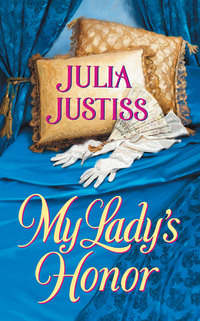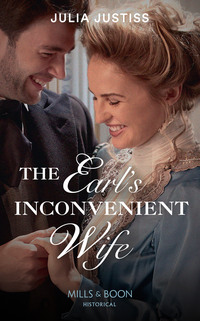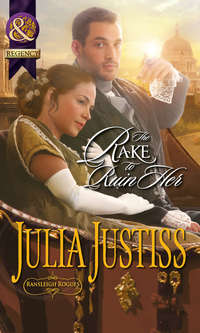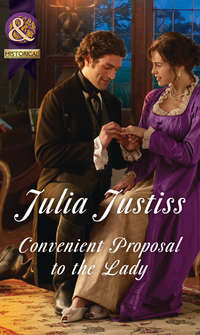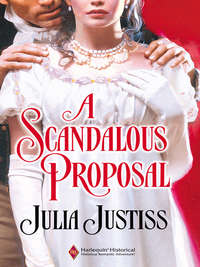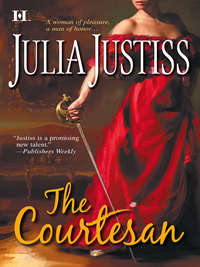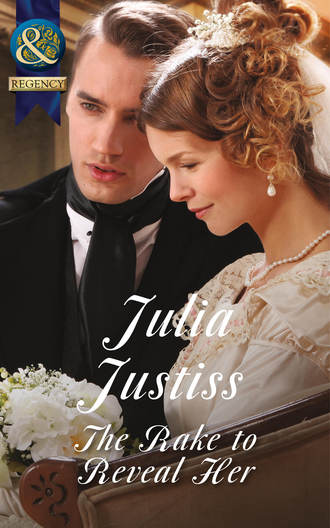
Полная версия
The Rake to Reveal Her
‘The solicitor informed me that all the properties are let to long-term lessees, whom I wouldn’t wish to displace. So I asked Mr Mitchell to find me a suitable country manor to rent, something with a sturdy outbuilding nearby of sufficient size to be turned into a dormitory and school. A place where the children can learn their letters and be taught a trade.’
Her aunt laughed. ‘Goodness, that sounds like a great deal of trouble! Wouldn’t it be simpler to send them off to the parish? It’s only two children, after all.’ At the look on Theo’s face, she said, ‘It is just the two?’
‘Well, you see,’ Theo explained, well aware of her aunt’s probable reaction to the news, ‘Colonel Vaughn told me before we left Brussels how much he appreciated what Papa and I had done for the orphans. After Waterloo, I...found two others, and in a reply I’ve just posted to his letter enquiring about the possibility, I assured him I would be happy to take in more.’
‘Theo, no!’ her aunt cried. ‘You can’t mean to bury yourself in the country and turn into some glorified—orphanage matron, looking after the children of who knows who!’
‘Who else will look after them, if I don’t? Should I just stand by and see the offspring of our valiant soldiers end up in a workhouse? Besides, I need something useful to do with my life, now that...now that I won’t be running Papa’s household any longer,’ she finished, proud to have made it through that sentence without a tremble in her voice.
‘My dear Theo, you’re far too young to behave as if your life is over! I know you believe you buried your heart when Marshall fell at Fuentes de Oñoro. But I promise you, one can find love again—if you will only let yourself. I’m certain Lieutenant Hazlett wouldn’t want you to dwindle away into an old maid, alone and grieving.’
‘At seven-and-twenty, I imagine society already considers me at my last prayers,’ she evaded. Though it had been more than five years now, she still couldn’t speak of the horror of losing Marshall. Loving so intensely had led to intolerable pain, all she could endure. She had no intention of subjecting herself to that ever again.
Besides, she could never marry someone without telling him the truth—and she didn’t dare risk that.
‘I’ll not argue the point—for now!’ her aunt said. ‘But I would like to persuade you to come to London. Though I perfectly understand why you felt it your duty to remain with Charles’s mother during her Hour of Need, I was so disappointed when you didn’t come stay with me as we’d planned. I’ve hoped since then we’d have another chance for me to spoil you a bit, after all the time you’ve spent in the wilds, billeted who knows where, never knowing where your next meal might come from, and with the worry of impending battle always weighing on you!’
‘One never completely escaped the worry,’ Theo admitted, ‘but battle was the exception. Most of the time was spent training, moving between encampments, or billeted in winter quarters. Provisions were generally good, with game to supplement the soup pot. As for accommodations...’ she chuckled, remembering ‘...Papa and I shared everything from a campaign tent to cots in a stable to the bedchamber of a marquesa’s palace! It was a grand adventure shared with marvellous companions, and I wouldn’t have missed it for the world.’
It had also brought her Charles, and, she thought as a stab of grief gashed her, a fiery passion she didn’t expect ever to experience again.
Which also reminded her that not all the companions had been marvellous. After the devastation of her fiancé’s death, one officer who was no gentleman had sniffed at her skirts, certain she must eventually succumb to the blandishments of a man of his high birth and social position.
The only benefit of leaving the regiment was she’d never have to deal with Audley Tremaine again.
‘Game in the soup pot and a cot in a stable!’ her aunt cried, recalling her attention. ‘Call me pudding-hearted, but I prefer a bed with my own linens under a sturdy roof, awakened by nothing more threatening than the shouts of milk-sellers.’
‘Campaigning would not have been for you,’ Theo agreed. ‘But I must leave you now to check on the children. Constancia—you remember Constancia, the nursemaid I brought with me from the convent after Charles was born?—will show you to your room. I hope you’ll make a long visit!’
‘I am due back in London shortly, and you’ll have much to do, getting your establishment put together. Unless I can dissuade you from this enterprise? Coax you to leave the children with those used to dealing with orphans, and concentrate on your own future?’
‘Abandon them to a workhouse?’ Theo’s heart twisted as she thought of those innocents turned over to strange and uncaring hands. ‘No, you cannot dissuade me.’
Lady Amelia sighed. ‘I didn’t think so. You’re as headstrong as Richard when you get the bit between your teeth. The whole family tried to talk him out of going to India, but no one could prevail upon him to remain at home, tending his acres like a proper English gentleman, once he’d taken the idea in his head.’
‘I do appreciate your wishing to secure a more suitable future for me,’ Theo assured her. ‘But having never lived in England and being so little acquainted with the society’s rules, I fear I’d be an even greater disappointment than Papa, were you to try to foist me on the Marriage Mart.’
‘A lovely, capable, intelligent girl like you? I don’t believe it! Though I admire your desire to aid those poor unfortunates, I refuse to entirely cede my position. I still think marriage would be best for you and them, and I shall be searching for a way to make it happen!’
Theo laughed. ‘Scheme, then, if it makes you happy.’
‘It’s your happiness I worry about, my dear. You’re still so young! I want you to find joy again.’
Joy. She’d experienced its rapture—and paid its bitter price. She’d since decided she could make do with contentment, as long as Charles was safe and happy.
‘I expect to be happy in my life, helping those “poor unfortunates”,’ she told her aunt firmly as she kissed her cheek.
So she must be, she thought as she walked out of the room. It was the only life left to her, a choice she’d sealed years ago when she left that Portuguese convent with a swaddled newborn in her arms.
Chapter Two
By the time Dom, beyond exhausted by the long walk home, arrived back at Bildenstone Hall, all he wanted was a glass of laudanum-laced brandy and something soft on to which he could become horizontal. Instead, he was met at the door by the elderly butler, Wilton, who informed him the Squire, Lady Wentworth and Miss Wentworth awaited him in the parlour—and had been waiting more than an hour.
‘Send them away,’ Dom ordered, limping past the man, desperate for that drink to ease the headache that was compounding the misery of his throbbing wrist and shoulder.
‘But, Mr Ransleigh,’ Wilton protested as he trailed after Dom, ‘the Squire said the matter was urgent, and he would wait as long as necessary to see you today!’
The words trembled on Dom’s lips to consign the lot of them—the Squire, Lady Whomever, the girl in the lane, Diablo and the butler—to hell and back. With difficulty, he swallowed them.
While Dom hoped to socialise as little as possible, he’d known that, once the Squire learned the owner of the most extensive property in the county had taken up residence, courtesy demanded he pay a call at Bildenstone Hall. Though his head pounded like an anvil upon which a blacksmith was hammering out horseshoes, he knew that it would be the height of incivility to send away sight unseen so distinguished a neighbour.
Unless he wished Wilton to tell that worthy and his party that, having fallen off a horse and been forced to walk home, Mr Ransleigh was in no fit state to receive them.
He might not have resided at Bildenstone Hall for years, but beyond doubt, every member of the gentry for miles around knew of ‘Dandy Dom’ and his exploits on the hunting field and in the army. Call it foolish pride, but even more than being branded as churlish, he dreaded being considered a weakling—a conclusion his injuries might make strangers all too quick to draw.
Dredging up from deep within the will that had kept him in the saddle through the fatigue and strain of many long campaigns, Dom said, ‘Very well. Tell them I’m just back from...riding the fields and will need a few moments to make myself presentable.’
‘Very good, Mr Ransleigh,’ the butler said, obviously relieved not to have to deliver a message of dismissal to a man of the Squire’s stature.
Hauling himself up the stairs, he rang for Henries. He had his mud-spattered garments removed by the time the batman arrived to help him into clean ones. Battle-ready within minutes, he squared his tired shoulders and headed for the stairs.
Though he ached for a soothing draught and a deep sleep, he figured he could stay upright for the length of a courtesy call. He was too tired to wonder why Lady Somebody and her daughter had accompanied the Squire.
A few moments later, he forced a smile to his lips and entered the drawing room.
‘Squire Marlowe, how kind of you to call! And whom do I have the honour of addressing?’ He gestured to the ladies.
‘So good to see you, too, Mr Ransleigh, after so many years!’ the Squire replied. ‘Lady Wentworth and Miss Wentworth, may I introduce to you our illustrious neighbour, Mr Dominic Ransleigh. A captain in the Sixteenth Light Dragoons who charged into the teeth of Napoleon’s finest, one of the heroes of Waterloo!’
‘Ladies, a pleasure,’ Dom said as the callers curtsied to his bow.
‘We’ve heard of your gallant deeds, of course, Mr Ransleigh,’ Lady Wentworth said. ‘Everyone in the county is so proud of you.’
‘We were all of us delighted to learn you intended to take up residence at Bildenstone Hall again,’ the Squire said. ‘Your father and mother, God rest their souls, were sorely missed when they abandoned Suffolk to settle at Upton Park.’
Had the neighbourhood felt slighted by his father’s removal to Quorn country? Dom wondered, trying to read the man’s tone.
‘When she learned I meant to call today,’ the Squire continued, ‘Lady Wentworth, head of the Improvement Society for Whitfield Parish, begged leave to accompany me. With her lovely daughter, Miss Wentworth, the ornament of our local society who, sadly, is soon to join her godmother for the Season in London.’
So that was why Lady Somebody had come, Dom thought, his mind clearing as he caught this last bit. As closely as news about his family was followed, he suspected that word of his broken engagement had already made it to Suffolk. The nephew of an earl with a tidy fortune and important family connections would be considered an attractive prospect by country gentry like Lady Wentworth, regardless of his physical shortcomings.
Equally obvious, the enthusiasm engendered in her mother by his matrimonial assets was not entirely shared by the daughter. Dom noted her gaze travelling from the pinned-up sleeve to his eye patch and back, her expression a mingling of awe and distaste.
First the girl in the lane scolding him for making excuse of his limitations, and now Miss Wentworth’s fascinated disdain. As if he were the prime attraction in a raree-show.
He had the ignoble urge to sidle up to her and see if she would flinch away. When his continued attention finally alerted her that he’d caught her staring at him, she coloured and gave him what he supposed most men would consider an enticing smile.
With her pretty face and glossy blond locks, she was as lovely as the Squire had pronounced her—and he felt no attraction at all.
Perhaps he ought to relieve her anxiety by assuring her he was in no danger of falling for the charms of an ingénue who’d probably never set foot outside her home parish. Then, rebuking himself for his uncharitable thoughts, he turned his attention back to the mother, who was nattering on about her reasons for accompanying the squire.
‘...take the liberty of accompanying Squire Marlowe, when in the strictest sense, I should not have called until my husband, Sir John, called first. However, there is a matter of urgency at hand. My society oversees the parish poorhouse, where honest folk in need are offered assistance. As I’m sure you’ll agree, it’s imperative that such unfortunates, their morals already weakened by low birth and squalid surroundings, not be made more vulnerable by exposure to additional corruption. As they certainly would be, were children of that sort allowed to reside here!’
‘Children of that sort?’ Dom echoed. ‘Forgive me, Lady Wentworth, but I have no idea what you’re talking about.’
‘Have you not yet been informed of the matter?’ the lady cried, indignation in her tones. ‘Infamous!’
Resigning himself to the fact that, though Lady Wentworth’s main purpose might be to show off her attractive daughter, her secondary one was not likely to be quickly accomplished, Dom said, ‘Shall we be seated? I see Wilton already brought tea; can he refresh your cups?’
Resisting the devilish urge to seat himself close to Miss Wentworth, and see whether the inducements of his wealth and lineage won out over her distaste for his damaged person, he took a chair opposite the sofa.
After Wilton had served the guests, he turned to the Squire, hoping his explanation would prove briefer. ‘Won’t you acquaint me with the matter?’
‘Certainly,’ the Squire said. ‘Two days ago, Mr Scarsdale, the solicitor in Hadwell, mentioned to me that Thornfield Place, which abuts your southern boundaries, had been let by a Theo Branwell. He then informed me that this man, already in residence, intends to approach you about renting the old stone barn your father once planned to turn into a cloth manufactory. For the purpose of setting up a home for soldiers’ orphans.’
‘A terrible prospect!’ Lady Wentworth cried, seizing hold of the conversation. ‘Having been with the army, Mr Ransleigh, you know better than we how rough a life it is! Lord Wellington himself referred to the common soldiery as “the dregs of the earth”. Only consider the offspring of such persons, growing up around vulgarity, drunkenness, and the company of...’ With a glance at her daughter, she leaned closer to whisper, ‘Camp-following women!’
Settling herself back, she continued in normal tones. ‘They could not help but have been corrupted since birth. I’m sure you understand our horror at the prospect that such children might be lodged nearby. Unthinkable enough that gently raised folk be subjected to their presence! Only consider how much more injurious association with them would be for the orphaned poor, with their innate bent to depravity. As head of a society devoted to their well-being, I felt it my Duty to speak with you at once about this nefarious scheme. Doubtless, this Mr Branwell means to play upon your sympathies as a former soldier. But as a gentleman of wit and discernment, I’m sure you could not wish to lend yourself to such an enterprise.’
In truth, Dom didn’t wish to lend himself to anything, particularly not to the lady whose strident voice was intensifying the pounding in his head. Knowing that responding would encourage her to embellish, likely at enough length that he got a good eyeful of her beauteous daughter’s neatly turned ankles, he meant to give her no excuse to prolong the interview.
‘I understand your concern, Lady Wentworth, and yours, Squire Marlowe. I assure you, when and if I’m approached by Mr Branwell, I will give the matter my most careful consideration. After such a long wait, I’m sure you must be pressed to return to other engagements. I myself am overdue to consult with my steward,’ he lied smoothly. ‘So you must excuse me, but do finish your tea before you depart.’
He rose as he spoke, continuing quickly. ‘Squire, a pleasure to see you again. Miss Wentworth, I wish you well on your Season, and best of luck with your society, Lady Wentworth.’
Deaf to their expressions of gratitude and protestations that they were in no hurry, Dom bowed and left the parlour.
Retreating to his chamber with as much speed as he could muster, he barely made it to the bed before his legs crumpled under him. Bracing himself with his good arm, he sank face-down on to the blessedly soft, flat surface and fell instantly to sleep.
* * *
With dim memories of having awakened in the dark to glug down a glass of the laudanum-laced brandy at his bedside, Dom pulled himself from sleep late the next morning, groggy and aching. He took another quick swallow of the brandy, thinking as he sank back against the pillows that he’d not indulged in strong spirits before breakfast since his salad days at Oxford.
After a few moments, the liquor soothing the sharp edges off his ever-present pain, Dom felt human enough to ring for his batman. Hot coffee and a hot bath would dispel the grogginess, after which he could dress and ready himself...for what?
Once, he would have headed for the barns to check on his horses. How he’d prided himself on his reputation for finding the most spirited yearlings with jumping promise and bending the difficult horses to his will, schooling them to jump obstacles they’d rather avoid. Gloried in the excitement of sitting astride a ton of barely controlled wildness while galloping through woods, fields and meadows, jumping streams, brush and fences.
There’d be no more of that, as yesterday had demonstrated with painful clarity.
He should go to his study, check the London papers and the current prices for prime hunters at Tatt’s. Or write to some hunting enthusiasts, asking if they were interested in purchasing any of his horses.
His spirits, already at a low ebb, sank even more at the prospect.
No, he couldn’t face that today. He’d go poke about in the library, which was as respectably large and well filled a room as he remembered. The pleasure of reading, a pastime often indulged while in winter quarters on the Peninsula, had been restricted by the dearth of books available. The single bright spot in his decision to retreat to Bildenstone was having access to the wealth of volumes his grandfather had accumulated.
Finding something intriguing would distract him from his misfortunes and raise his spirits, he told himself. Maybe he’d wander outside to read, see if the gazebo in his mother’s garden was still a pleasant place to sit.
He needed to start figuring out his future...but not yet. Once the additional aches of yesterday’s disastrous episode faded, he’d be in a better frame of mind to move forward.
* * *
An hour later, fed, dressed and feeling marginally better, Dom walked towards the library. Encountering the butler on the way reminded him of the previous day’s meeting, and he paused.
‘Wilton, I don’t wish to receive any more visitors. I mean no one, not even if God Himself turns up on my doorstep!’
Looking pained at that sacrilege, Wilton nodded. ‘As you wish, Mr Ransleigh.’
‘That’s what I wish,’ he muttered, and continued to the library.
After browsing through Caesar’s Commentaries, lamenting his inattention during Latin studies, Dom settled on a volume of Herodotus. The day having turned cloudy, he abandoned thoughts of the garden and settled in a wing chair before a snug fire.
As he’d hoped, the discussion of the struggle between Xerxes and the Spartans soon absorbed his attention.
* * *
When Wilton bowed himself into the room later, he realised enough time had passed that he was hungry.
Unwilling to leave the comfortable chair, he said, ‘Would you ask Cook to prepare some of the ham and cheese from last night, and bring it here to the library?’
‘Of course, Mr Ransleigh. But first...’ the butler hesitated, an anxious expression on his face ‘...I’m afraid I must tell you that...that a young lady has called. I explained that you weren’t receiving anyone, under any circumstances, but she said the matter was urgent and she would not leave until she saw you.’
Yet another lady on an urgent errand that would not keep? Who might it be now?
Though he’d happily tilled his way through fields of accommodating beauties before getting himself engaged, he’d always been careful; he had no fears that some dimly remembered female stood on his doorstep with a petit paquet in arms.
Curiosity was soon submerged by a lingering irritation over yesterday’s unwelcome visitors. ‘You didn’t admit her, did you?’
‘No, sir. Following your instructions, I closed the door—in her face, as she refused to move, a thing I’ve never done in my life, sir!’
‘Sounds like problem solved,’ Dom said. ‘Eventually, she’ll tire of waiting and go home. Will you have that tray brought up, and some more coffee, please?’
The butler lingered, looking even more distressed. ‘You see, sir, as the young lady arrived at just past eight this morning, while you were still abed, I felt no hesitation in refusing her. But it’s now nearly two of the clock and...and she’s still waiting.’
Annoyed as he was to have yet another person try to intrude upon his solitude, Dom felt a revival of curiosity which, as he reluctantly reviewed the situation, intensified.
He hadn’t mingled with society here for years, and only a few knew he’d returned to Suffolk. He had no idea who the woman might be, or what matter could be compelling enough to prompt her to come alone and wait for hours to consult him.
Arguing with himself that he would do better to ignore the caller, and losing, he finally said, ‘Who is it? Not the girl from yesterday, surely.’
‘Oh, no, sir,’ Wilton said, sounding scandalised. ‘Miss Wentworth’s mama would never allow her to call alone on a single gentleman. The Young Person didn’t give me her name, saying it wouldn’t be known to you anyway.’
It would be scandalous for an unmarried girl to call on him, Dom belatedly realised. He’d been out of England so long, he’d initially forgotten the strict rules governing the behaviour of gently born maidens.
Maybe she wasn’t so gently born.
There might be possibilities here, he thought, his body now taking an interest. Not that he was sure he was yet healed enough that such pleasant exercise wouldn’t cause him more agony than ecstasy. ‘You called her a “young lady”, though. Why, after such brazen behaviour?’
‘Well, she is young, and in speech and dress, she appears to be a lady, however improper it might be for her to come here.’
‘Alone, you said.’
‘Yes, sir.’
‘What has she been doing all this time?’
‘When I last glanced out, she’d seated herself on the brick wall at the end of the courtyard. She appeared to be reading, sir.’
‘She hasn’t knocked again?’
‘No, sir. I suppose, sitting where she is, she knows the household must be aware of her presence.’
So his unwelcome caller had been waiting for hours. Without trying a second time to force herself upon them.
Reading a book.
Persistence he understood, but he knew few men, and no females, that patient.
After an irresolute moment, that bedevilling curiosity overcame his body’s urging that he remain seated. Dom rose from his chair and paced to the mullioned windows.
Glancing out, he could see, below to his left, the three-foot wall that set off the courtyard spanning the space between the two Tudor wings projecting from the main block of Bildenstone Hall. Sitting there, wrapped in a cloak, was a female, her figure so foreshortened by height and distance that he couldn’t accurately estimate her shape or stature.
The day, already gloomy when he’d made his way to the library, had darkened further. As he gazed at her, a gust of wind rattled the window.
‘It’s going to rain shortly,’ he said, after a soldier’s inspection of the clouds. ‘That should send her on her way. I’ll have that tray now.’
‘Yes, sir,’ Wilton said, looking brighter. Apparently feeling that, having discharged his duty to the fairer sex by informing his master of the girl’s presence, he could now absolve himself of responsibility for her welfare, he trotted off for the tray.


